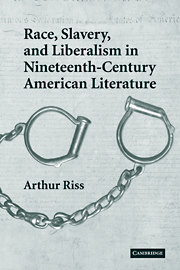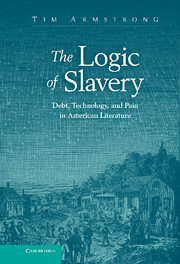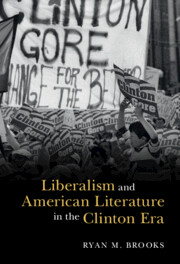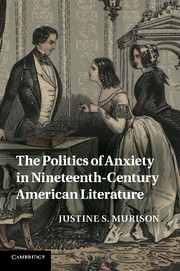Race, Slavery, and Liberalism in Nineteenth-Century American Literature
Moving boldly between literary analysis and political theory, contemporary and antebellum US culture, Arthur Riss invites readers to rethink prevailing accounts of the relationship between slavery, liberalism, and literary representation. Situating Nathaniel Hawthorne, Harriet Beecher Stowe, and Frederick Douglass at the center of antebellum debates over the person-hood of the slave, this 2006 book examines how a nation dedicated to the proposition that 'all men are created equal' formulates arguments both for and against race-based slavery. This revisionary argument promises to be unsettling for literary critics, political philosophers, historians of US slavery, as well as those interested in the link between literature and human rights.
- Argues that literature played a crucial role in antebellum debate over slavery
- Focuses on key authors of the American Renaissance: Hawthorne, Stowe and Douglass
- Controversial argument about the debates on slavery in the American liberal tradition
Reviews & endorsements
Review of the hardback: 'Riss is a deft, polished writer and a gifted literary scholar.' Literature & History
Product details
September 2009Paperback
9780521120203
248 pages
229 × 152 × 14 mm
0.37kg
Available
Table of Contents
- Introduction: the figure a 'person'makes
- 1. Slaves and persons
- 2. Family values and racial essentialism in Uncle Tom's Cabin
- 3. Eva's hair and the sentiments of race
- 4. A is for anything: US liberalism and the making of The Scarlet Letter
- 5. The art of discrimination: The Marble Faun, 'Chiefly About War Matters', and the aesthetics of anti-black racism
- Conclusion.






